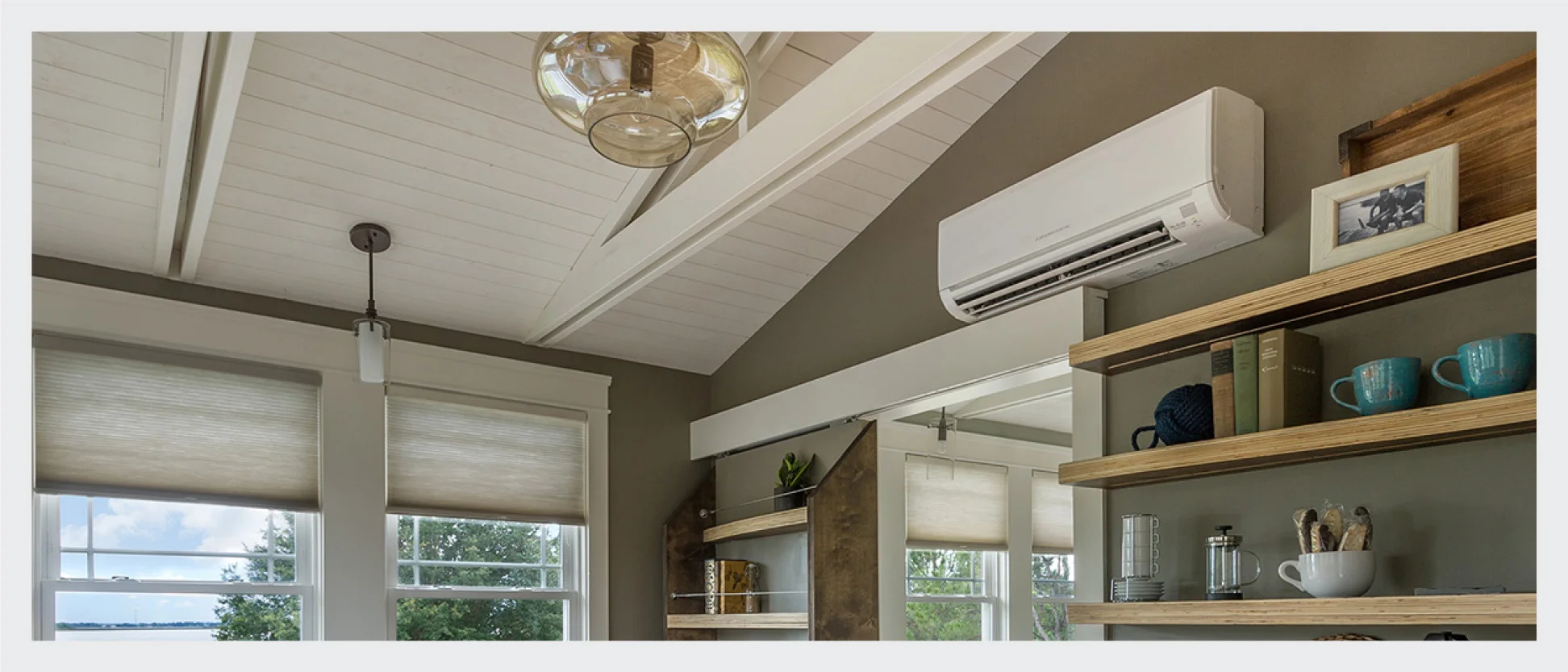How does a ductless heat pump work?
Ductless Heat Pumps in Portland and Bend
Ducts are commonly considered to be an important part of heating and cooling systems. But on average, 20-30% of heating and air conditioning efficiency is lost through a home’s ductwork (Source: ENERGY STAR). A 20-30% loss translates directly into higher utility bills. Ductless heat pumps operate without energy-wasting ducts, resulting in immediate savings.
Learn more about ductless heat pumps in Portland and Bend, Oregon
How do ductless heat pumps operate?
Each system consists of an outside compressor / condenser unit and indoor units mounted on the wall or ceiling of each room that you wish to heat and cool. The outside condenser unit is connected to the inside air-handling units by individual conduits which house power cables, refrigerant tubing, suction tubing, and a condensate drain. The indoor units essentially replace the ductwork.
A ductless heat pump works in much the same way as a traditional heat pump, minus the ducts and the additional interior unit required by traditional two-piece heat pump systems. Most of these systems are air-source heat pumps, which heat by pulling warmth from the air into the system, and distributing this heat to the rooms via the wall or ceiling-mounted units.
Efficient Air Conditioning
When cooling, refrigerant from the outside compressor runs through the refrigerant tubing to the indoor units. Cool air is then fanned across the indoor unit’s evaporative coil, and out into the room. Heat pumps can also act as efficient dehumidifiers, keeping the occupants of a room more comfortable at a higher temperature during hot weather.
Zonal Heating and Cooling
The system is “zonal”, which means that it heats or cools only the areas that are currently in use, rather than the entire house. Each indoor unit is controlled by its own thermostat. A ductless heat pump system is relatively easy to install (no ductwork required), and can save up to 40% off utility bills.
A ductless system it is an especially good choice in situations where adding or extending a conventional HVAC system is too costly or impractical. Common situations include adding a room, converting an attic or basement into living space, or upgrading an older, inefficient baseboard heating system.
learn more about ductless heating and cooling
Drop us a line to learn whether ductless makes sense for you. You can also read more about the Mitsubishi systems that we install, peruse our frequently asked questions, or take a look at our ductless resources.


